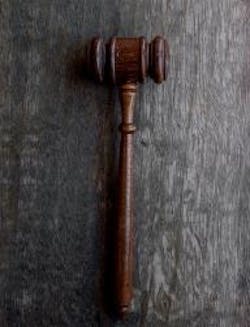How does the Purdue deal compare to the largest settlements in pharma history?
The company filed for bankruptcy protection last month and as part of the deal, Purdue floated a plan that would include a $10 billion settlement paid out to the 24 states with the bulk of the roughly 2,600 opioid-related lawsuits levied against the company.
Although there had been a lot of momentum to reach a global settlement — similar to the one tobacco companies reached in the 90s — the deal could still fall apart. Last week, Arizona announced that it is backing away from the proposed settlement, saying that the deal is just an attempt to protect the wealth of the company’s owners.
But if the settlement ultimately goes through, it will be the largest paid by a pharma company in history. Here’s a look at how it compares:
Merck, Vioxx, $4.85 billion — Although it was once a blockbuster arthritis medication, Merck was forced to pull Vioxx off the market in 2004 amidst evidence that the NSAID doubled the risk of heart attack or stroke. Facing 27,000 lawsuits related to claims of injury or death from taking Vioxx, Merck ultimately agreed to pay $4.85 billion to settle the suits in 2007 — one of the largest civil litigation settlements in history at the time.
Interestingly, a small startup called Tremeau Pharmaceuticals is now working on a way to potentially bring Vioxx back on the market. According to a recent report, the company is exploring the use of the anti-inflammatory to treat severe joint pain related to hemophilia, a bleeding disorder. The FDA recently awarded the company orphan drug designation for the development of Vioxx. If it’s ultimately approved, doctors could once again prescribe it for several kinds of chronic pain.
American Home Products Corp, Redux and Pondimin, $3.75 billion — Diet pills were all the rage in the 90s and Pondimin, which was part of a combination of appetite-suppressing drugs known as fen-phen, was one of the most popular. With thousands of Americans popping fen-phen, the FDA also approved Redux, a chemical cousin with fewer side effects. But the dangers were still high. Ultimately, the FDA pulled the drugs from the market after it was revealed that they were linked to serious heart valve defects. American Home Products Corps later agreed to pay $3.75 billion to settle a class-action lawsuit related to injuries from the drugs.
GlaxoSmithKline, several antidepressants, $3 billion — In 2012, the Justice Department announced that British drugmaker GlaxoSmithKline agreed to pay $3 billion to settle claims that it unlawfully promoted off-label uses for certain drugs including the popular antidepressants Paxil and Wellbutrin. The criminal and civil lawsuits also alleged that GSK used false price reporting practices and failed to report certain safety data for the drugs. The deal was the largest health care fraud settlement in history at the time and resulted in the largest fee paid by a pharma company.
Takeda Pharmaceuticals, Actos, $2.4 billion — Takeda never conceded that its Type 2 diabetes drug, Actos, was linked to bladder cancer. But in 2015, the largest drug maker in Asia agreed to settle about 8,000 lawsuits claiming that it did and that the company hid the risks from patients. As part of the deal, Takeda did not acknowledge any liability.
Pfizer, 13 medications, $2.3 billion — After six whistleblowers come forward claiming that Pfizer unlawfully gave kickbacks to doctors for off-label uses for several drugs, the company finally agreed to pay $2.3 billion to settle criminal and civil liabilities. The cases involved Bextra, an anti-inflammatory drug that was pulled off the shelves in 2005 due to safety issues, as well as Geodon, an antipsychotic drug, Zyvox, an antibiotic and Lyrica, an anti-epileptic medication.
Johnson & Johnson, Risperdal, $2.2 billion — In 2013, Johnson & Johnson was found guilty of illegally marketing off-label uses for several prescription drugs including Risperdal, an antipsychotic drug. In particular, J&J was hit with charges that it illegally offered payments to health care providers for targeting elderly patients with dementia. The company ultimately paid $485 million in criminal fees and $1.72 billion in civil settlements.
The drama around Risperdal continues to follow J&J. Earlier this month, a jury in Philadelphia rendered a massive $8 billion verdict against the company for claims from one patient that the drug made him grow breasts. That suit is one of 13,000 J&J is facing for similar accusations.

